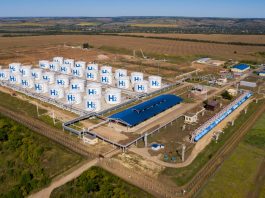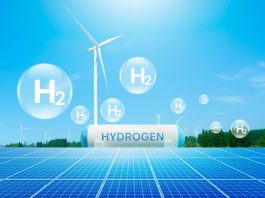Warwickshire-based SME Wastewater Fuels has developed a unique innovation to harness energy from wastewater, utilising environmentally friendly practices and circular economic systems that capture hydrogen energy.
The groundbreaking technology, known as a Microbial Electrolysis Cell (MEC), treats wastewater using microbes that consume organic matter, transforming it into hydrogen ions, which are then converted into hydrogen gas and stored within the rod.
This hydrogen energy technology supports the UK Government’s commitment to achieving net zero greenhouse gas emissions by 2050 and reducing emissions by 78% by 2035.
It also aligns with the Ministry of Defence’s (MoD) desire to incorporate more circular economy principles into defence operations.
Why treating wastewater is essential
Treating wastewater is crucial for protecting the environment and ensuring the health of both humans and animals. Inadequately treated wastewater can pollute water sources, damage ecosystems, and cause serious illnesses.
Despite this, 80% of wastewater produced globally goes untreated. Traditional wastewater treatment methods, such as mechanical filtration or physical sedimentation, are efficient but can be energy-intensive or costly, particularly in remote or challenging environments.
In the UK alone, about 2-3% of National Grid energy is dedicated to treating wastewater. This requires 9,000 water treatment sites across the country and represents a significant energy expenditure.
A method to treat wastewater and simultaneously utilise it as a fuel source could revolutionise wastewater treatment by producing more energy than it consumes. Now, Wastewater Fuels has pioneered such a technology.
How Microbial Electrolysis Cells generate hydrogen energy
The MEC system operates by submerging stainless steel mesh rods in wastewater. These rods become colonised by microbes that break down organic matter, producing hydrogen ions.
These ions diffuse into the rod’s core, where they are converted into hydrogen gas. The gas is collected and stored for use.
This innovative approach functions as an electrically conductive filter that encourages microbial growth. As wastewater passes through, microbes break down the organic matter, leading to the production of hydrogen energy, which is then collected.
Wastewater Fuels’ MEC system demands less space, maintenance, and equipment compared to current wastewater treatment assets.
With no moving parts, the system experiences less wear and tear, requires fewer component replacements, and is easier to maintain, making it ideal for deployment in locations with urgent water treatment needs.
Successful case studies
Wastewater Fuels is partnering with Severn Trent Water, which has provided access to various sections of their Spernal wastewater treatment facilities for trials of their innovative MEC technology.
Initial tests have been successful, showing that the MEC wastewater plant can be self-powering with significant hydrogen generation for compression, storage, and distribution, or for generating electricity through fuel cells.
The initiative has also received additional funding from Coventry City Council. This support has allowed Wastewater Fuels to maintain its headquarters in Coventry, close to local suppliers, thereby reducing supply chain costs and enhancing collaboration.
This improved collaboration has been crucial in ramping up production of their MEC rods in preparation for a full-scale sewage facility at RAF Digby.
By transforming wastewater into a viable source of hydrogen energy, the company is not only addressing environmental challenges but also paving the way for a more sustainable energy solution in the UK.









